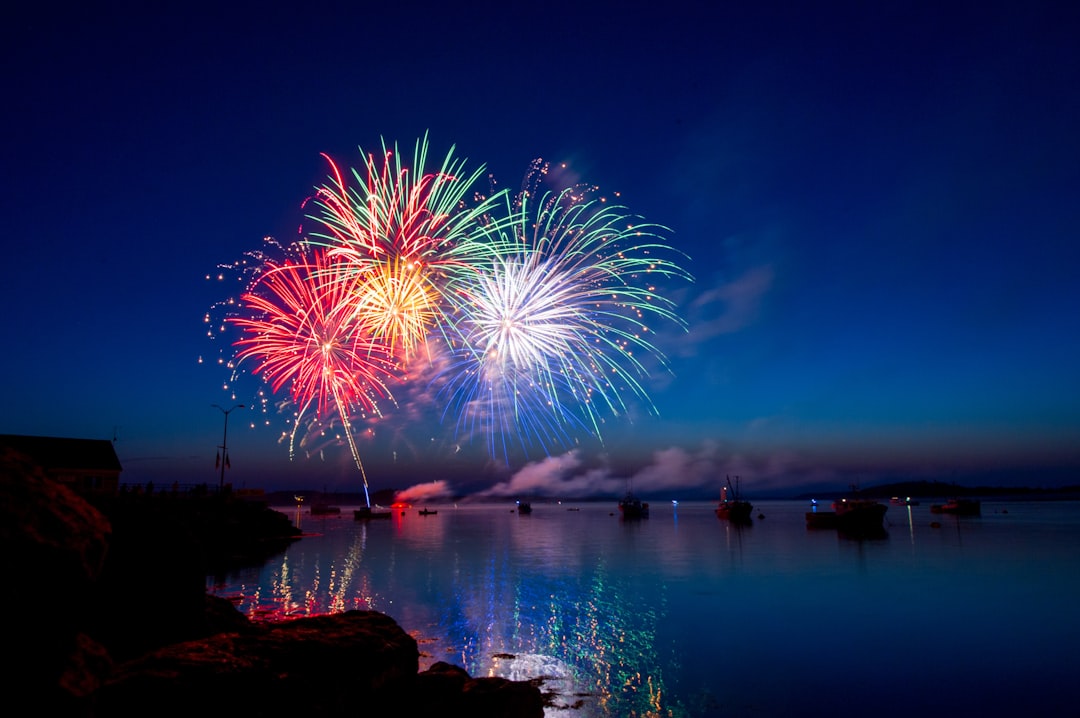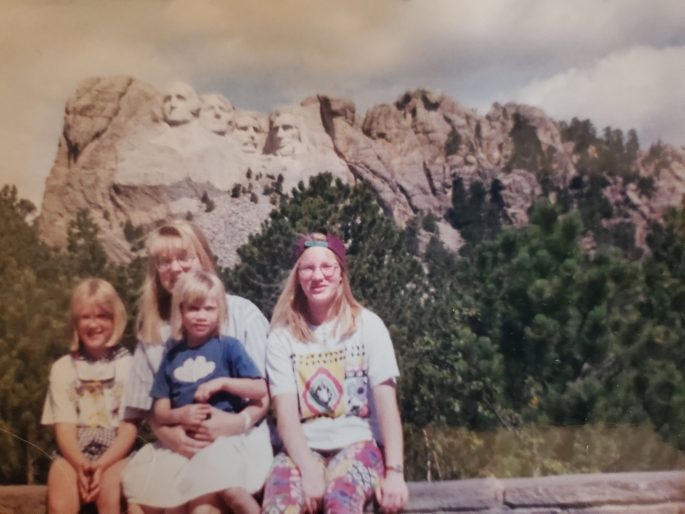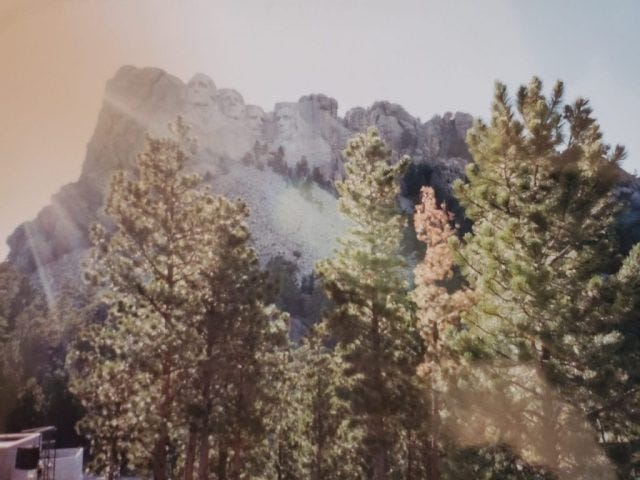Reflections of a Struggling Patriot
We can love our country and still struggle with her current state

In Embracing Curiosity, I step away from writing about travel to comment on the bigger journey of life, exploring my faith and politics with curiosity and nuance.
I first visited Mount Rushmore when I was eleven. While I wasn’t initially excited about the stop on our way home to Illinois from my uncle’s wedding in Washington state, the walk up to the wall overlooking the national monument was unforgettable.
My second visit to Mount Rushmore was when I was fifteen. Jaded and already upset about the fact that my parents had decided to turn our family vacation into an ill-advised camping trip, I took the time to actually look around at more than just the faces on the mountain. This time I noticed the signs around the monument that reminded visitors that the Black Hills were a sacred space for local Native American tribes. While I still found the huge carvings to be awe-inspiring, for the first time I felt that pang of uneasiness at the complicated relationship between American expansionism and indigenous peoples.

My third visit to Mount Rushmore was when I was in my early 20s. My husband Jeff had convinced me to spend a week driving from our home in Indiana to Yellowstone National Park and back. What initially seemed like a crazy idea turned into the camping vacation of our dreams. The day we stopped at Mount Rushmore, we got there in the late afternoon, the sun preparing to set behind the monument and blinding us. It was too hot, we couldn’t see the faces because the sun was in our eyes, and we had just enough time to breeze through the visitor center, see a video or two, and then head back down the road to our campsite. The whole visit was anticlimactic and a bit disheartening.

As I started to think about the celebration of Independence Day during 2020, I realized that perhaps my experiences with one of America’s most iconic and problematic monuments are a metaphor for how many of us feel about the country that is our home.
As a child, I blindly loved my country like so many of us also blindly love our parents. There was always a sense of awe about the vastness of the United States. There was pride in what our country had accomplished. There was hope about the future and the powerful position that our country held around the world.
As an adolescent I started to see the cracks. While incomplete, I learned more about the wrongs committed by my country. I started to learn about the destruction of Native American tribes, the internment of Japanese American citizens, the virtual enslavement of Chinese immigrants, and the implications of nearly 250 years of slavery in the United States. But I still looked at the plantations with awe. I still saw the land stolen from indigenous tribes as rightfully American. I believed that we had learned our lessons and that racism was a problem of the past, not an issue that continued to plague our present and my eventual children’s future.
As an adult, the truth blinds me, leaving me disoriented and disheartened. The more I read, the more I watch, the more I listen, the more I realize how little I actually knew about my country. I knew one narrative, and while most of the narrative was true, it was terribly incomplete.
I’m finding that my relationship with my country is much like that of a child to her parents. As children we love our parents unconditionally. Then they disappoint us or hurt us or we learn some unsavory truth about their past. We have to work through that hurt and confusion to redefine our relationship with our parents. Those that are able to work through those hurts and disappointments, with the cooperation of all involved parties, end up with full and rich lives. They don’t ignore the past. They deal with the past, accept that it is part of their family’s stories, and then they move on to make a better future.
We have citizens who have been hurt and neglected by our country.
We have citizens who have been completely alienated by our country, treated like outsiders because of laws that do not provide the equity that we were promised.
We have citizens who have been hurt by those family members who continue to fiercely defend her, ignoring her flaws.
Some of us are learning ugly truths about our country that we never knew or conveniently ignored because it didn’t affect us.
Some of us are seeing our faith used as a club to beat other family members into submission.
Many of us are feeling disoriented by our rapidly changing relationship with the place that is supposed to provide comfort and protection, our country and our home.
Webster’s Dictionary defines patriotism as “love for or devotion to one’s country.”
Perhaps that is the reason so many of us are feeling dizzy, confused, hurt, and disoriented on this Fourth of July.
We were raised to love our country. We’ve celebrated with sparklers, red and blue jello, watermelon and corn-on-the-cob, barbeques and family picnics. Our nation’s birthday, the birthday of our motherland, has always been a time for celebration. We’ve been taught that devotion to our country is one of the most important values we can hold dear.
But maybe it is time for us to develop a grown-up patriotism, a patriotism driven by mature love. Mature love both recognizes the other’s flaws and loves the other despite those flaws. That doesn’t mean we accept those faults as just being an unchangeable part of a loved one, especially if those flaws cause us or others harm. A healthy relationship requires change so that healing and growth can take place.
I love my country and I want better for her. I want to see those blinding transgressions transformed into a beautiful sunset, multiple colors mingling with the imperfections in the sky to create a stunning tapestry. I want to develop a mature patriotism, one that doesn’t put up blinders but one that sees the flaws and works towards transformation so that all citizens can feel they truly belong to the country that they call home, whether by birth or adoption.
July 4, 1776 was just the beginning of our nation’s story. It brought forth a document that transformed the world. But it wasn’t the end of America’s story. Let’s keep working to make it a story we can all be proud of.
Please “like” by clicking on the ❤ and share this post with your friends so that others can also join the journey.


